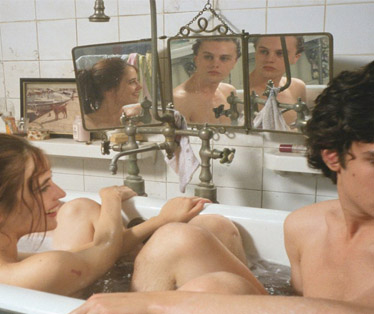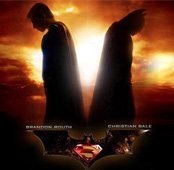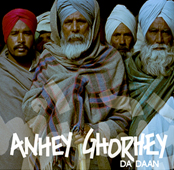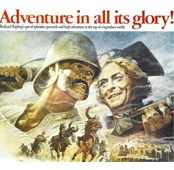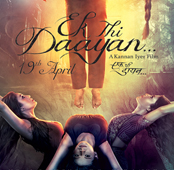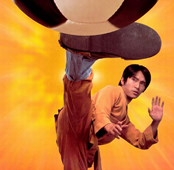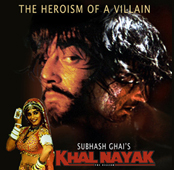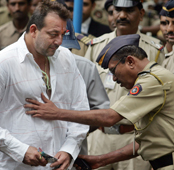-
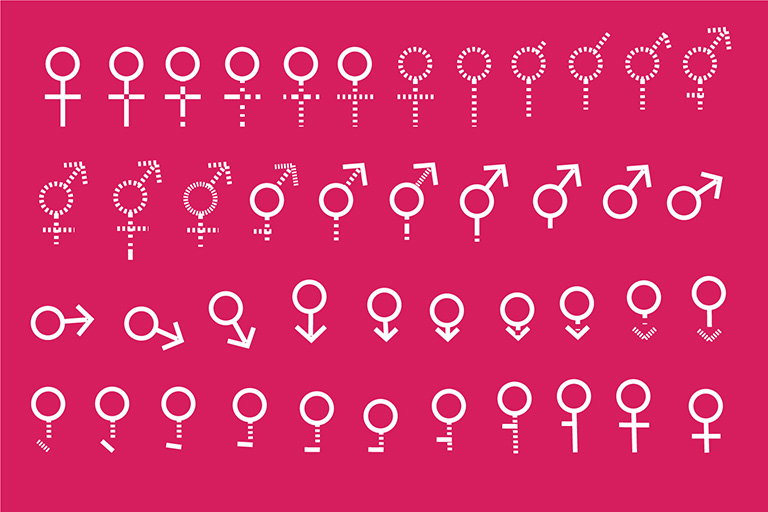 Amrita Bagchi for TBIP
Amrita Bagchi for TBIP -
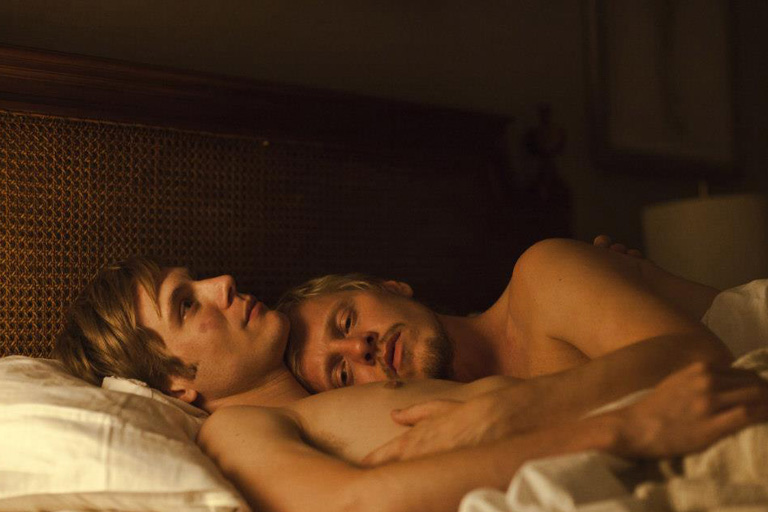 Keep The Lights On (USA) Director - Ira Sachs
Keep The Lights On (USA) Director - Ira Sachs -
 BOL (Pakistan) Director - Shoaib Mansoor
BOL (Pakistan) Director - Shoaib Mansoor -
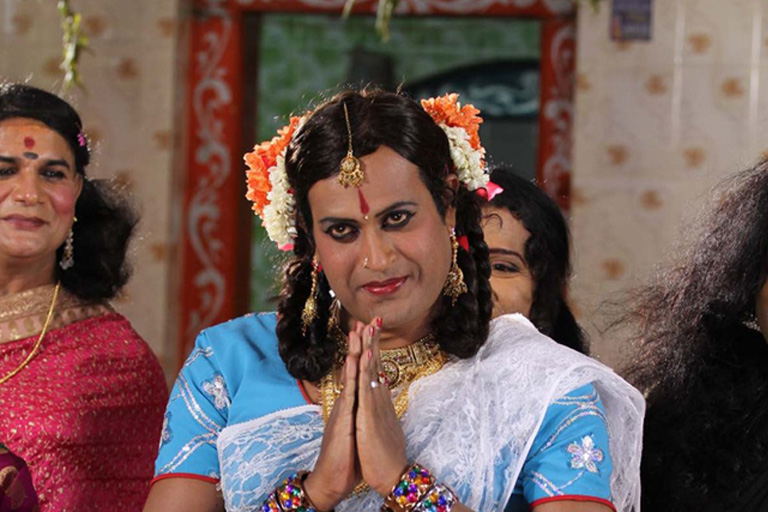 Ardhanaari (India) Director - Santhosh Souparnika
Ardhanaari (India) Director - Santhosh Souparnika -
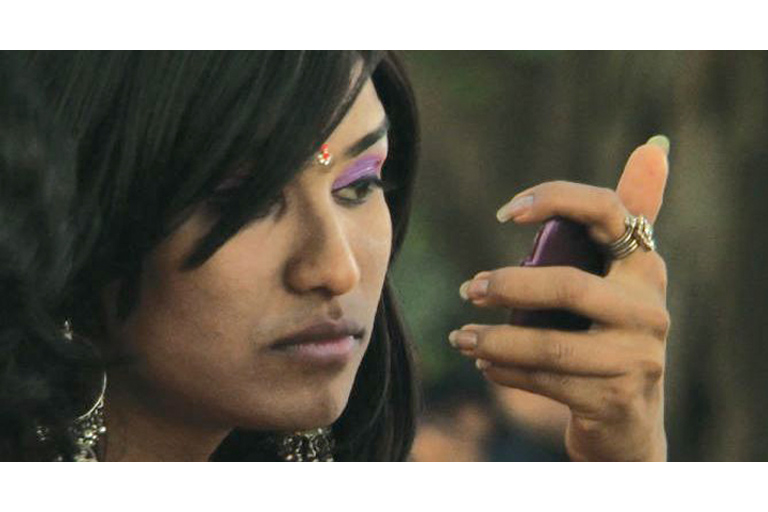 In-between Days (India) Director - Sankhajit Biswas "
In-between Days (India) Director - Sankhajit Biswas " -
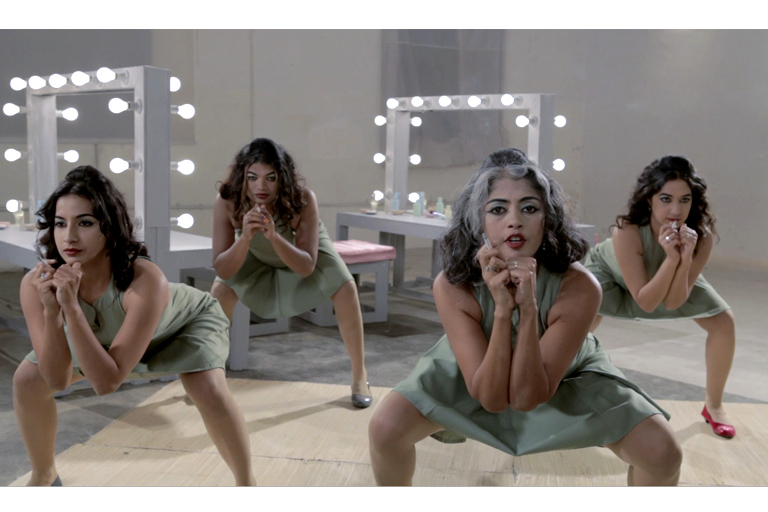 Item Number (India) Director - Oliver Husain
Item Number (India) Director - Oliver Husain -
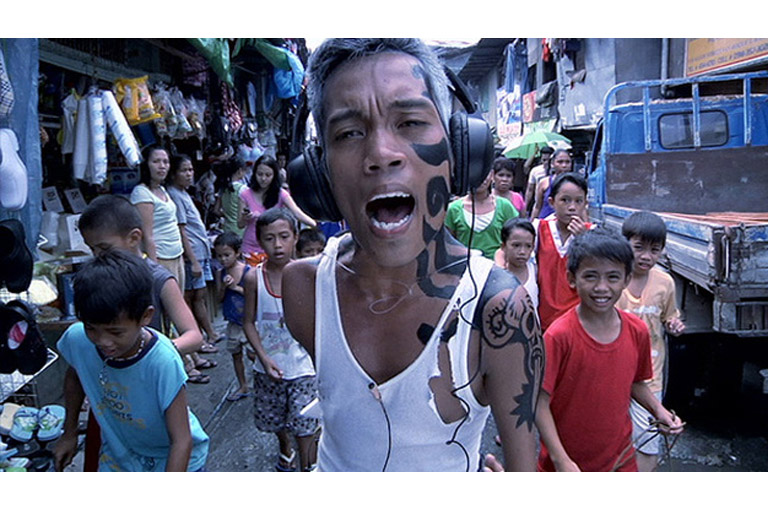 Mondo-manila (Phillipines) Director - Khavn de la Cruz
Mondo-manila (Phillipines) Director - Khavn de la Cruz -
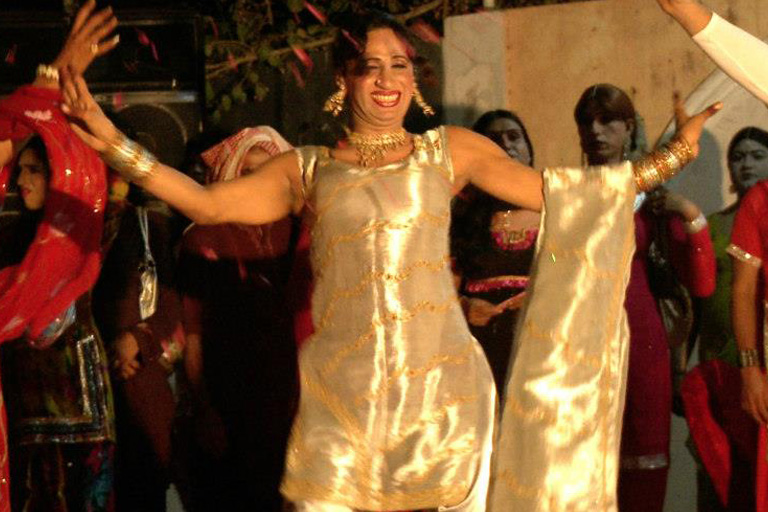 Transgenders: Pakistan's Open Secret (Pakistan) Director - Sharmeen Obaid Chenoy
Transgenders: Pakistan's Open Secret (Pakistan) Director - Sharmeen Obaid Chenoy -
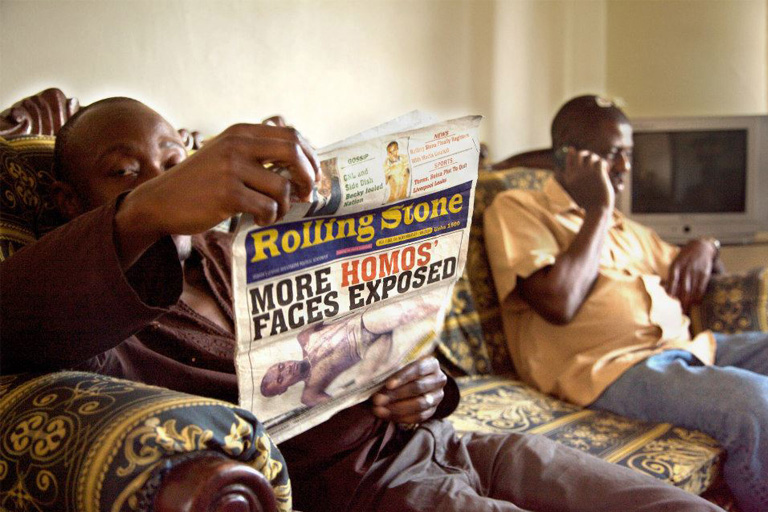 Call me Kuchu (Uganda/US) - Directors - Katherine Fairfax Wright and Malika Zouhali-Worrall
Call me Kuchu (Uganda/US) - Directors - Katherine Fairfax Wright and Malika Zouhali-Worrall -
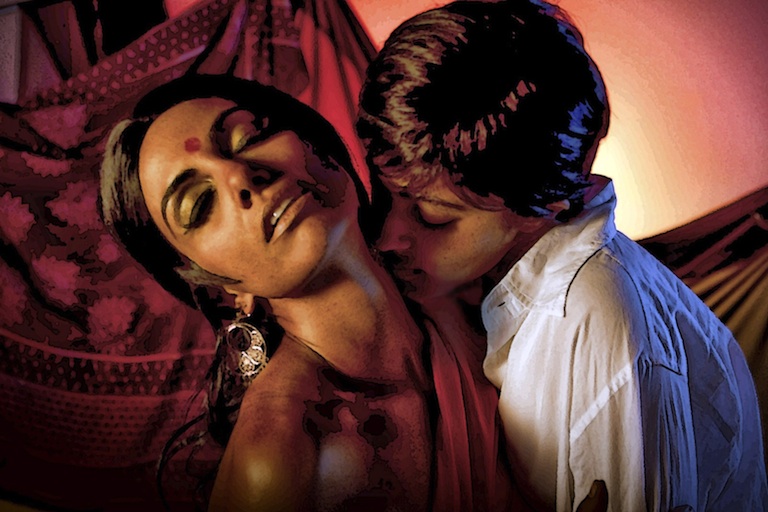 Queen of My Dreams (USA) Directors - Fawzia Mirza & Ryan Logan
Queen of My Dreams (USA) Directors - Fawzia Mirza & Ryan Logan -
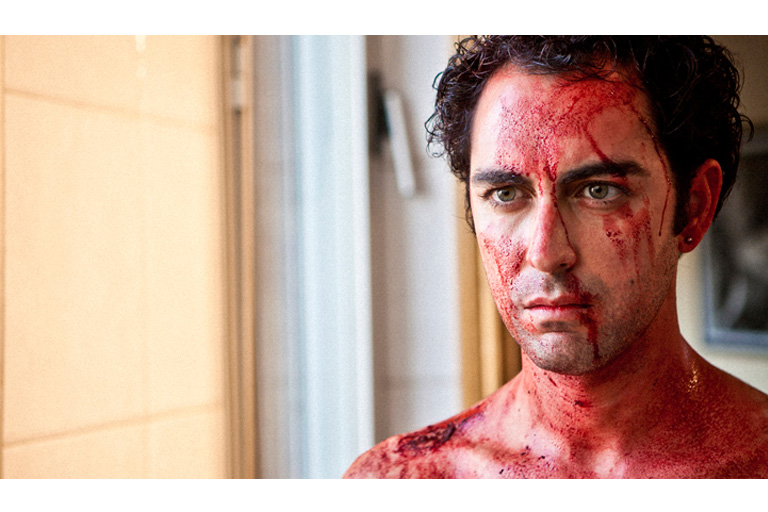 Ratas (Spain) Director - Jota Linares
Ratas (Spain) Director - Jota Linares

Queer of My Dreams
Last month, in Bangalore, during the book tour of her first novel, Not Only The Things That Have Happened, author Mridula Koshy said, “I am fed up with writers saying that they want to show human beings are the same everywhere. It seems like a dull ambition.” Directors of queer cinema too often fall into the trap of talking about their work in the same-same or same-but-different or so-different-you-can’t-touch-
Let’s eavesdrop on filmmaker Andrew Haigh feted for his film Weekend, a film about two gay men who fall in love after a casual encounter in a bar. In this piece he says, “You want to be able to describe the gay experience in all its complexity without worrying that your film has to represent a community.” He goes on to say, “But we can move away from the big issues and go a few layers deeper, which makes the films more accessible to a lot of people because they’re about more universal issues. These characters’ struggles aren’t just about being gay.” Here I do not want to dismiss Haigh’s concerns but I just wonder about all the other things he could be saying about his film-making process, if he wasn’t being knotted up by questions of universality. Perhaps it’s just that filmmakers, like dancers, should never talk about their work.
By a series of mysterious incidents, I was one of the four judges at the recently concluded fifth edition of the Bangalore Queer Film Festival. The results are out and you can check them out here. More importantly, you should make serious attempts to seek out some of these films. Even better, make plans to arrive at the next edition and enjoy the warm, relaxed hijinks among which movies and performances are watched at BQFF. We could wave at each other.
BQFF programming leans towards short films and the 26 short films in competition were, for most part, wonderful. Even the tiny, somewhat lazily made Can You See The Real Me? (director: Pankaj Gupta) was a great vehicle for the charisma of the transgender hair stylist Sylvie. The handful of Spanish short films were supremely competent, ranging from the black comedy of the love triangle in Ratas (Jota Linares) to the girlfriend-swapping fun of Vecinas (Eli Navarro). It’s impossible to not enjoy the smirking seriousness with which Love Wars (Vicente Bonet) has been made. Two gay stormtroopers, as identical as two penguins, discuss their relationship and politics while war rages outside the Death Star. It is the most charming Star Wars spoof since Eddie Izzard and more romantic than the ‘official’ sequels in which Hans Solo and Leia have children with Malayali sounding names (Jacen, Jaina and Anakin).
The most romantic of the shorts was the Thai entry, She Is My Best Friend (Jirassaya Wongsutin). One minute, life is about ensuring your best friend doesn’t lose her hair band or cheat too much at badminton and then, nothing looks right anymore. This 13 minute film made me wonder again where Thai and Korean directors find their amazing child actors.
The meme of romance in unlikely places continued into the German Zucht Und Ordnung (Jan Soldat) where two naked elderly men demonstrate their bondage gear, talk about life and send up the shiny youthfulness of gay romcoms.
Annoyingly the same audience that laughed non-stop at the daft, blackmailed and brutalized lesbians in the Hindi short Tamaso Maa Jyotir Gamaya (Arshad Khan) lapped up the much worse pap of Reminiscence of Ether (Veena Kulkarni) in which two similarly daft women meet, fall in love, consider adoption, break up, have angst and stunning lines such as: “You are late.” “Call me fashionably late.” Reminiscence faked sophistication no better than Tamaso Maa… faked the downfall of the wealthy. Unlike Tamaso Maa…, Reminiscence… is Anglophone, and it doesn’t have an Ekta Kapoor aesthetic or villains in a seedy den. This somehow translated to Reminiscence… getting the BQFF 2013 Audience award and various weeping, life-changing moments in the aisles.
This year’s festival programming had a few more features than usual. Many of them were dreary enough for me to wish for a return to a short-film heavy status quo. Nevertheless you should watch a couple of the features if you want a quick jolt out of any vanilla-Hollywood zone you might inadvertently be in.
I first watched Mondomanila: Or How I Fixed My Hair After A Rather Long Journey, last year at an Osian screening in Blue Frog, Delhi. It was mid-morning and outside the world was calm. Inside, there were only three of us in the dark, sitting in alien-designed bar furniture watching Mondomanila, swinging between shock and resentment at being manipulated into shock. Re-watching it last week left me in roughly the same state. From the first time director Khavn De La Cruz’s cast of characters in a Manila slum make their appearance, right up to their parting sing-along, the intention is clear: we want you to be bug-eyed. The rat-eating, the twin lesbian dwarf sex, the murder of an American paedophile all feel like they were made to toy with the sensibilities of First World critics who have called Khavn De La Cruz everything from the Filipino Bunuel to the Filipino Takashi Miike. The carnivalesque air, the jolly bloodshed and what De La Cruz calls “a close-up view of all that gangrene and pus” all skates past you though. An hour later it’s hard to remember any of the “backyard full of lovable fuckers” De La Cruz reportedly wanted to make a film about. Except perhaps a hazy memory of a little guy in a stars-and-stripes top hat.
Don’t try and watch the Pakistani feature Bol, on the same day. You will need all the faculties from a lifetime of melodrama-watching to appreciate its full charms. Notionally it is about Saifi, the intersexed child born in a household of seven sisters and his suffering at the hands of his father and lecherous men. Mostly, the film is about Saifi’s father.
If Bol does seem to suggest that patricide is the way to a fuller, capitalist life don’t let it distract you from the cast of pretty women including Iman Ali from Shoaib Mansoor’s earlier film Khuda Ke Liye, the kind of oppressive father you haven’t seen in years, a kindly languishing mother and the brief appearances of a beedi-smoking dai and a hijra with a can-do attitude.
Perhaps a Thai, Pakistani or Filipino director should have been set to the task of adapting Sarah Water’s The Night Watch. This was the first of Waters’ non-Victorian-lesbian-romps. The bloodless adaptation of the story of three lesbians and a gay man in post WW2 London reminded me of another Eddie Izzard theory where he neatly categorizes much of British cinema as being “a room with a view with a staircase and a pond… Films with very fine acting, but the drama is rather sort of subsued and… subsumed or… a word like that. Sub… something or another. You know, just folded in and everything’s people opening doors.”
For no rational reason, I had most looked forward to the documentaries at BQFF. The first handful made me a little alarmed. Really, if you had to make Beyond The Team (Tim Kulikowski) a film about an all-gay football team would you only shoot them, one after the endless other, talking about how they didn’t fit into (supposedly) straight teams and how they are happy to have found each other. Mama Rainbow (Fan Popo), a Chinese documentary about mothers who had embraced their gay offspring headed in that one-gag direction too. Though I was distracted by the slightly off-the-wall moms, everyone’s clothes and a throwaway, solemn statistic— 50 million gay Chinese people. What a glorious nation to move to.
Soon after, things began to look up. The Oscar-nominated How to Survive a Plague (David France) is chock-full of footage of truly inspiring political action in the early years of the AIDS epidemic in the US, elevating its earnest story-telling— the kind that NGOs call ‘process documentation’.
Next, I saw In-Between Days, Sankhajit Biswas’ wistful film about two transgender Bengali teenagers, Bubai and Chiranjit, who gamely navigate sex-work, friendship, family and a distinct lack of money. The scene in which the filmmaker follows Bubai to school where he’s about to write an exam is particularly striking. Bubai’s classmates’ reactions to his arrival are raucous and varied. They are mean, curious, affectionate, teasing and mean all over again. Slender, pretty Bubai is cautious but not alarmed. Bubai smiles a little, enjoying the drama, but is watchful that things don’t get messy just before the exam. The camera and its role in their reaction are made explicit. Unlike for instance in Sharmeen Obaid-Chinoy’s film Transgenders: Pakistan’s Open Secret which has a ‘shocking state of affairs in Pakistan’ style cold open, and then stays cold.
When one of the hijras (or khusras as they are known in Pakistan) is taunted by gaping passersby there is no acknowledgment from the filmmaker that what is being recorded is also a reaction to the camera crew, not just the daily lives of the khusras. There is no acknowledgement that despite the poverty and violence they face, khusras are part of Pakistani society, and are being defamiliarized by the eye of the clumsy filmmaker and the clumsier voice-over. A similar defamiliarizing eye goes into the hamaam and records the heated transactions of a chela being sold to a new guru (with the chela’s intervention, not to say consent) and gives it a tawdriness that no one takes to the boardrooms where footballers are sold for millions.
Luckily, there was Call Me Kuchu, (directed by Malika Zouhall-Worrall and Katherine Fairfax Wright) a film that quietly (and I am not a fan of the quiet documentary maker) follows several seeds of an outburst of homophobia in Uganda— murders, utterly bloodthirsty tabloids that call for homosexuals to be hung, a right-wing bill that calls for capital punishment for gays and lesbians, jail sentence for HIV-testing and punishment for those who don’t out gays to the state within 24 hours. The filmmakers follow around a group of gay men and women who try to make sense of this new, apocalyptic landscape. The steady gaze and excellent soundtrack tell the story of several tragedies without ever attempting emotional blackmail. For days afterward you will remember the protagonist David Kato, his mother, his friend Naomi and a slew of others. And this without resorting to twin lesbian dwarf sex.
TBIP Take
OpinionMarch 2013
 By Nisha Susan
By Nisha Susan
Nisha Susan is a writer and critic based in New Delhi. She was Features Editor at Tehelka magazine and has worked for several non-profits. Her short fiction has been published by Penguin and Zubaan and she's currently working on a novel and a book on Malayali nurses. Her expectations of cinema were permanently raised from watching pulp films as a three-year-old in her grandfather's village theatre.



